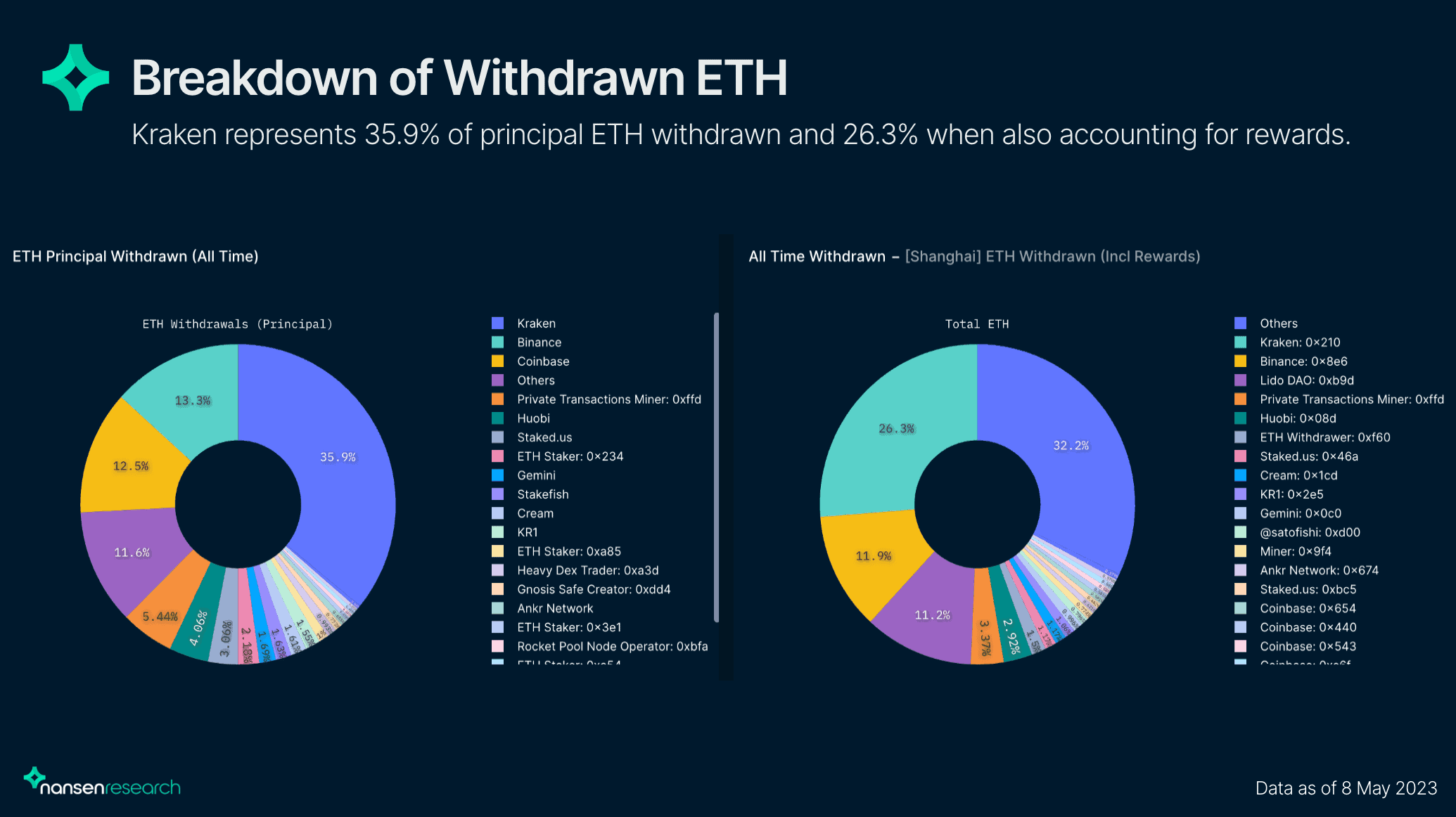Analyzing Ethereum Post-Shapella Upgrade: Nansen
In the lead-up to the last month’s Shapella upgrades, many crypto pundits speculated that activating staked Ether withdrawals could drag the price of the native asset down.
But the latest data suggest that the selling pressure on ETH post-withdrawal “has been somewhat of a non-event.” This is backed by the fact that deposits have almost matched the amount of ETH coming into circulation.
State of Ethereum: Post Shapella
The Shapella implementation was crucial as it enabled the withdrawals of staked ETH from the Beacon Chain for the very first time. However, the event also ignited concerns about the unstaked ETH entering circulation potentially leading to sustained selling pressure. The bullish outlook, on the other hand, argued the risk of being unable to withdraw is eliminated, resulting in more deposits.
According to Nansen’s recent report that analyzed the state of Ethereum post-Shapella, it was observed that the elimination of unstaking risks has thus far offset selling pressure from withdrawals. To top that, a significant proportion of the ETH withdrawn is likely not intended for selling.
The report stated that the upgrade had a net zero impact on ETH staked.
“There are 19.3M ETH, including rewards, on the Beacon Chain today, equivalent to the amount of ETH on the Beacon Chain during the time of the Shapella upgrade, meaning that it has had a net zero impact on the network so far.”
The withdrawal requests were dominated by centralized crypto exchanges. Kraken, for one, is leading with its withdrawal volume accounting for more than 26% of all ETH withdrawals since the upgrade. This is likely related to the recent regulatory crackdown on the US-based exchange’s staking service, which has forced it to return the staked ETH to depositors of its platform.
“Other notable Principal ETH withdrawers include Binance, Coinbase, and Private Transactions Miner: 0xffd, with 13.3%, 12.5%, and 5.44% of the share of Principal ETH withdrawn, respectively.” – the report reads.

A month after the upgrade, withdrawals have greatly slowed down, and Nansen’s data suggest that the majority of entities are currently holding onto their remaining balance for now. Entities such as Lido, Binance, Coinbase, Kiln, and Stakefish account for deposits of more than a million Ether over the past month.
Withdrawers Behaviour
Nansen reported that nearly 73% of the withdrawn ETH from the Beacon Chain thus far has been sent to centralized exchanges. But, the majority of this is CEXs withdrawing ETH to themselves, which indicates that the majority of the token being sent to these entities is not intended for selling. Instead, these tokens are for the exchange’s internal operations.
Contrastingly, the amount of ETH sent to decentralized exchanges from withdrawers only represents 1.23% of the total proportion. Around 20% of the withdrawn ETH were found to have been sent to all miscellaneous addresses which are not labeled as CEX, DEX, Staking, or DeFi, according to Nansen, and approximately 6% of all withdrawn ETH was sent to re-stake.
Nansen believes this cohort is less likely to take profits as they are still running validator nodes, and staking rewards are processed automatically. Therefore, some ETH from partial withdrawers would return to the Beacon Chain to rake in more yield.
The post Analyzing Ethereum Post-Shapella Upgrade: Nansen appeared first on CryptoPotato.

